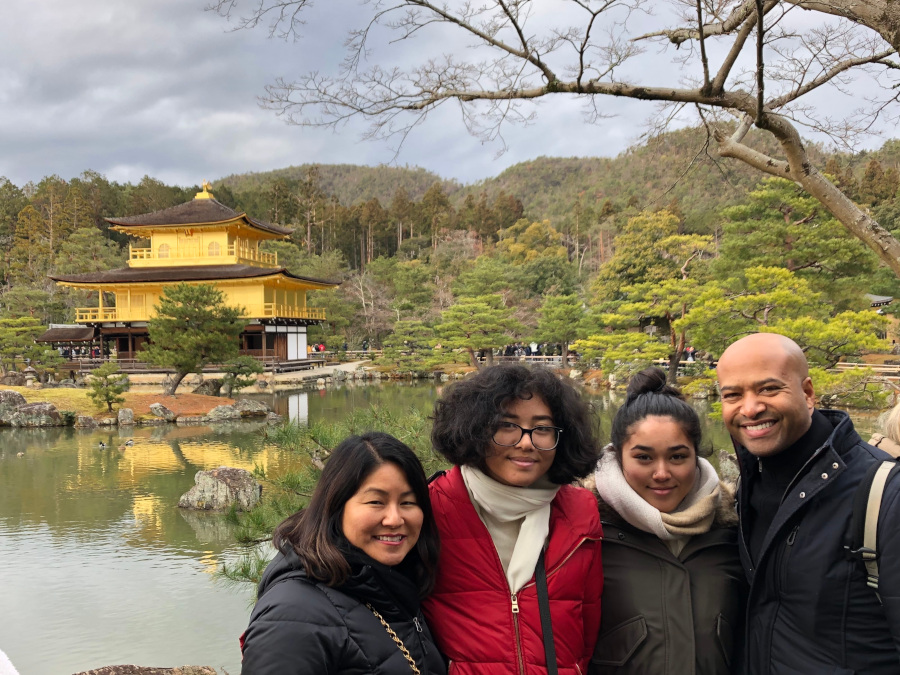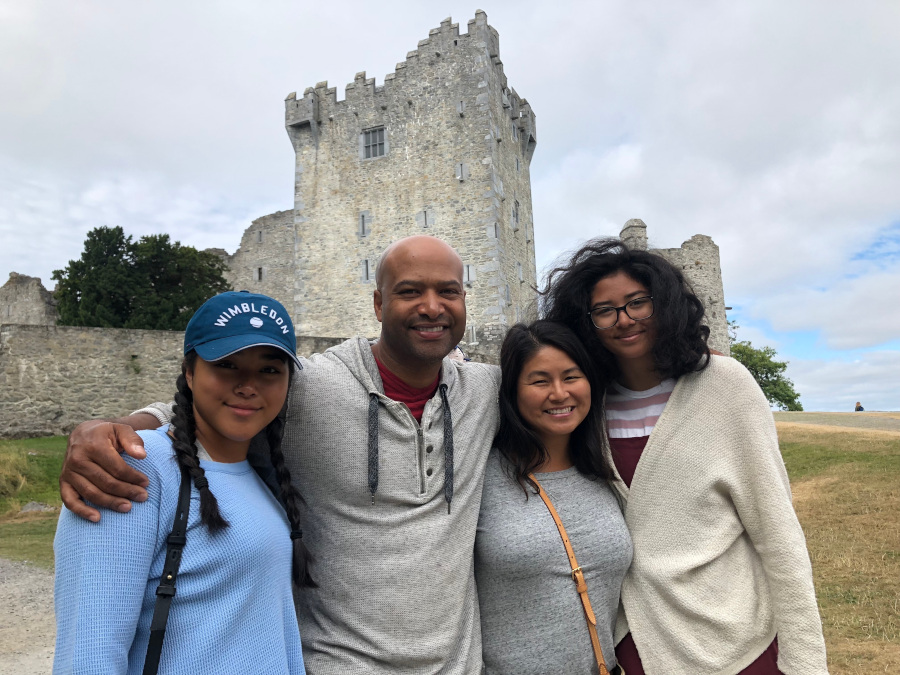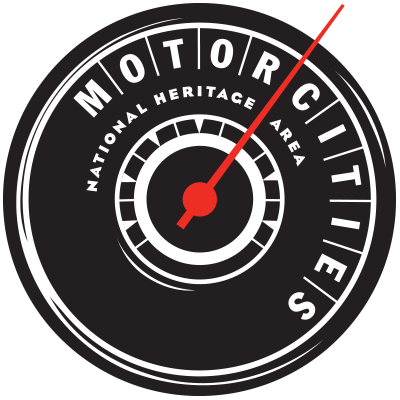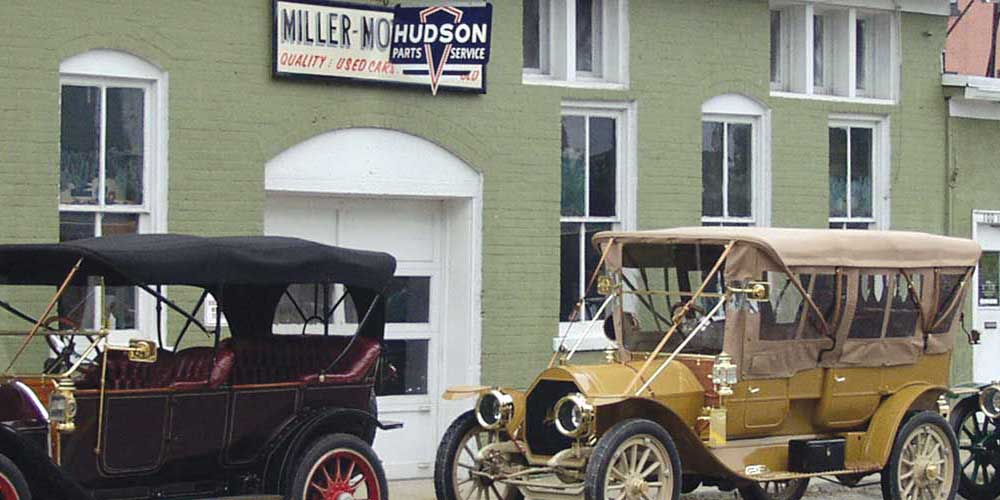By Maggy Corkery
Photos courtesy of Ralph Gilles
Published 6.23.2021
 Stellantis' Ralph Gilles and his family
Stellantis' Ralph Gilles and his family
EDITOR’S NOTE: In honor of June being National Caribbean-American Heritage Month, we are reprinting this article that originally appeared in the June 2021 edition of the Zanmi Detroit newsletter, published by the Haitian Network Group of Detroit (HNGD). Used with permission of the HNGD and the author. The photos are courtesy of Ralph Gilles.
With May being Haitian Heritage Month, I wanted to focus my article on a male or female individual of Haitian descent. Someone whom our ancestors, Toussaint Louverture, Marie-Jeanne Lamartinière, Jean-Jacques Dessalines, Claire Heureuse Félicité Dessalines or Henry Christophe, would look at with pride and say “Ou mennen bak ou byen! You have done well!” In my mind, that special person would also need to be a role model for all youth of color, and particularly Haitian American youth. I purposefully wanted to stay away from a star or a celebrity athlete because not everyone is cut out for either of these occupations and those who make it to the pinnacle are few and far between. Rather, I wanted an individual who was local, approachable, that boys and girls could not only relate to but would also want to emulate; and when hearing about that person’s life story, they would immediately think “if he or she can do it, I can do it too!”
As far as I was concerned, it was a no brainer … It had to be Ralph Gilles! Once the light bulb came on, I immediately reached out to his wife Doris, whom he lovingly referred to as “my boss.” Doris waved her magic wand, and a few days later I was conducting an interview with Ralph Gilles.
Although we used a virtual platform and were miles apart, as soon as he greeted me, his warmth and congeniality were palpable. From the get-go, we agreed that we would be informal and address each other by our first names. Many times, during our interaction I had to remind myself that it was not a dream! The Chief Design Officer for the Chrysler, Dodge, Jeep, Ram, Maserati and Fiat Latin America brands, and a member of Stellantis’ Top Executive Team had actually set some time aside to share his story with me, in spite of his very busy schedule. And so, I spent 30 delightful minutes chatting with Ralph, who, in addition to English speaks fluent French and some Italian and Créole. We touched on everything from his work to the views on his parenting that he shares with his wife, who also speaks Mandarin.
It was such a nice and down-to-earth conversation that rather than providing a summary, I decided to share the interview in its entirety.
Maggy Corkery: For those who do not work in the automotive arena, what does it mean to be Chief Design Officer and a member of Stellantis Top Executive Team?
Ralph Gilles: It means that we have a view of what is going on in the company around the whole world. Stellantis is a company with 14 brands. We are now the fourth largest automaker in the world with our combined French, American and Italian roots. We basically sell cars in every country, on every continent. So, we have incredible coverage. In my job, I have to have a lot of global awareness. I travel quite a bit so that I can see firsthand the trends in different segments and markets; more so before COVID-19, but now I am starting to travel again. As a member of the executive team, I get to be exposed to the decisions guiding the company forward. We have a lot of meetings, but also work a lot and take actions.
Corkery: What a journey it has been for you! Can you recount what the experience was like from when you first started in the field?
Gilles: I started working at Chrysler in 1992 as a board designer. I remember that feeling and pinching myself because I actually got to work and sketch and draw. For the first time, I was not the weird kid sketching in the back of the class. I was among peers and learning from them. The same thing happened to me when I went to school in Detroit just before that. This continuation of being surrounded by creative people is just intoxicating. I am surrounded by artists and creative people all the time. We are naturally positive because we always believe that the next best thing is coming: the coolest car that I have not designed yet! The downside is that every night I go to sleep wondering “did I have my last ideas?” It is a bit of a constant self-challenge to push and try to keep the company going. My big jump came in 2000 when I became the Director of Design in the performance car groups. It was a huge jump. At 30 years old it was a pretty exciting leap for me. And the next big one was in 2008, when I became Head of Design for the North American Market for Chrysler and in 2013, I became Head of Global Design for Fiat Chrysler Automobiles. The responsibilities have increased, but I try to maintain a very accessible nature in the way I lead. I surround myself with young people and creative people.
Corkery: What does your success mean to you as a person of Haitian descent?
Gilles: It is huge! My parents are first generations. They were in their late teens and early twenties when they moved to the US. Taking a big gamble, they wanted us to have a better life. Every day they reminded us that we were Haitians, and they were incredibly careful to educate us on our history. My grandmother lived with us, and she practically raised us. She barely spoke English, just a little bit of French and mostly Creole. She cooked for us and taught us many lessons. I never forgot that I was Haitian. I always feel it in my heart! I always feel the connection. I have been back to Haiti 3 or 4 times. A few years ago, I went with my family. It struck me then the significance of what my parents did. So, we give back. We support the schools there. We donate money whenever we can. I still have this connection with Haiti. I want to make sure that young Haitians who look up to me say “Wow! I can do it too!”
Corkery: How do you think you would have reacted if, when you were in your 20s, someone had told you that you would be occupying this important position?
Gilles: I would have never believed it! Honestly, I still do not believe it! I do not take it for granted at all. I am very grateful and thankful. I always encourage every person that I meet who has similar dreams. In some ways, I have exceeded my dreams. I just wanted to be a car designer and be in a major car company, and I achieved that. But doing what I do now, leading people, is a different kind of challenge. Somewhere along the way, I had to learn to be a leader. I had to really learn to listen carefully and find ways to make people’s lives better. Internally and externally, whether it is car design for a customer or in the workplace. How do we treat people to encourage them to stay with the company when they can go anywhere? The people who work for me are so talented. The biggest thing I try to strive for is to make our office as pleasant a place as possible. It starts with me: my attitude, my way of handling my employees, my accessibility, my friendliness. It is something I have used my whole life. My parents taught me to be friendly. People can be intimidated very easily; I try to create the opposite and create a welcoming environment.
Corkery: In your opinion, what are the elements that facilitated your success?
Gilles: Good role models! I am very lucky. On both sides of my family I had extremely good role models. Aunts and uncles who are successful; but beyond just being successful … They are very good and very kind and welcoming people. I love how they helped cousins out for years, letting them sleep in their house, helping them out when they were down. There is always this mentality of taking care of each other in my family. And still to this day we behave this way. So, it is role models; it is also the achievement thing. My parents were very strict, so no fooling around, no going out, no playing. They were the authority figures, and I was a very good kid in those days; my kids are the same. I have been blessed. I follow the motto “Leave people better than you find them.” That is how I live my life.
Corkery: What advice do you have for our youth who are interested in this field?
Gilles: Number one is: do your homework. When I was their age, there was no such thing as the internet. Now, they have this incredible tool to reverse engineer. That is for any career, it does not have to be just this one. Any career they find interesting. Google it and reverse engineer it. Try to understand where the people who work in this field went to school, what they studied. There is a lot of information to be gathered. My dad was very big on this. It is that time from 14 years old to 22 years old; it is the most critical time of your life. People mistake that time as the time to have fun and fool around. Even though I lamented about not partying or doing anything terribly fun in those days, I thank my parents because that is exactly when I buckled down. For a little while I went AWOL, but for the most part that is when I stuck to the books. And now, I can have fun for the next 50 years of my life. It is a small investment in the beginning to pay for a lifetime of opportunities.

Corkery: You have two daughters, correct? What are their names and ages? Did you encourage them to follow your career path?
Gilles: Yes, but I do not have them, they have me. Tia is 22, and Sydney is about to be 21. I refused to encourage them to follow my footsteps. I told them do what you want to do. One is in the animation world in California, and the other one is in the fashion industry in New York.
Corkery: What can parents do to nurture a talent that they see in their children?
Gilles: I had very supportive parents, aunts, and uncles. My mother gave me paper to draw, simple things like giving me the tools. My aunts and uncles gave me the encouragement to go to college and they helped me get the application. So, I had a very supportive network. I think what parents can do is listen to their kids. Haitian parents sometimes tend to put pressure on you to be a doctor or this type of thing. Ironically, my brother is a doctor. For a split second, I thought maybe I should be a doctor. Since I could not handle the sight of blood, I had to think of something else. So, my parents got it and they did not give me any unnecessary pressure. But at the same time, I think that as parents you have to be a little bit tough. Not so lax that the kids do not have discipline.
Corkery: In the US, there is currently a lot of racial tension; your family is unique in the sense that you are of Haitian descent and your wife is of Asian descent. Do you have that conversation with your children?
Gilles: We talk about it all the time. In some ways, the Asian and Black cultures are going through similar things. There is a new kind of kindred spirit in a way. In our case we call it “Blasian” and, so far, it has not been too much of an issue. They have been able to find a network of friends who are very liberal and open minded. At the same time, they are genuinely concerned about some things that they see, as there are also a lot of bad apples out there. We never assume that everybody is in the same mindset. That is the way I am. I take every single person, one case at a time. I do not cast an opinion on any group. Because when I used to, I was always proven wrong. The person you might think is a certain way might be the completely opposite way. Once I met a man whom I thought was a certain way, then I found out that he had adopted five Black children. You just never know; you really have to take everybody case by case. Try not to let the appearance or things that you see out there taint your view of the world. You are just as responsible to change people’s views. For years I have been having these conversations that today are called uncomfortable, because I always get misjudged. I do not use my position to carry myself any certain way. You would be surprised if you see me on the weekends; I look like a lumberjack. You would never realize that I am the head of anything. I love that and it always surprises people. I love the unexpected conversations.
Corkery: Considering that they are of mixed heritage, which culture do your children identify with?
Gilles: That is something that we talk a lot about. They probably identify with the Asian side. Since they do not outwardly look Black, people do not assume that they are. It has happened that on occasion they have overheard comments made about Blacks and they have had to address it. So, it has been tough for them sometimes. They have a lot of empathy for both cultures. My wife and I have been careful to go back and forth between both sides of our family. They are exposed to both cultures. They are children of the new world; they are the modern generation, and they do not want to identify. They feel this incredible opportunity to restrike what the new normal is. They identify in the term that they respect their heritage, but they do not let that be the first thing. They want to be able to understand the world. One of the benefits of my job is that I have seen the world. The minute we could, we took the kids with us everywhere. They have seen the whole world, and this has opened their eyes. They really understand that people come in all shape and sizes. How can you not be tolerant when you are mixed like this? They are citizens are the world, but also proud that they are “Blasians.”
The interview with Ralph Gilles ended on a positive note with a promise of having some of his prized works of art displayed at the 2022 Bèl Bagay Lakay Haitian Art & Craft Festival. What a treat this will be for car enthusiasts and for all lovers of beautiful things! Stay tuned!



